The most common question asked on Lonely Speck answered for Canon shooters!
What is the best lens for astrophotography? The one that collects the most light.
Below is a list of the highest scoring lenses for untracked nightscape photography and astrophotography. The score is a direct representation of light gathering capabilities based on the formula:
Score = (aperture area) × (angular area) × (suggested shutter speed)
Where the shutter speed is the longest suggested shutter speed in seconds based on the “500 Rule” (500/focal length). Aperture area is the surface area calculation of the clear aperture of the lens and the angular area is the angular field of view in square radians. This score is a mathematical calculation based purely on some simple physics. It doesn’t account for other considerations like the lens’s build quality or optical aberrations but it’s a good gauge of overall light gathering capability. You can also see the complete list of scores here, complete with calculations and further explanation.
All of the lenses listed here are my personal suggestions for photographers looking to get the absolute best astrophotography results with their camera. If using the given camera mount, these are the lenses that I would use. Most of these lenses are manual focus lenses by Rokinon which also tend to be much more affordable than their autofocus Canon counterparts. Additionally, most of the Rokinon lenses are sharper and tend to exhibit less coma aberration than their Canon counterparts. If you’re willing to learn how to use manual focus, Rokinon lenses are spectacular performers.
If you would like to know more about the thoughts that went into creating this list, please read my article on how to pick a lens for Milky Way photography.
EF Mount (Full Frame and APS-C)
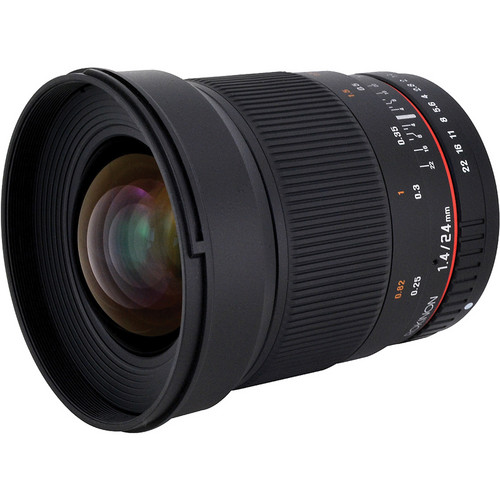
24mm/1.4: Rokinon 24mm f/1.4 ED AS UMC ( Amazon / B&H )
- The best night photography and astrophotography lens you can buy. Excellently sharp, especially when stopped to f/2. Manual focus.
- My full review of the Rokinon 24mm f/1.4
- Score: 2869
- This is my go-to lens for astrophotography on a full-frame DSLR. It’s fast, wide and shows very little aberration problems. Still my personal favorite for Canon full frame DSLRs like the 6D, 5D Mark III and 5DS/R cameras.
- Sample from the Rokinon 24mm f/1.4:
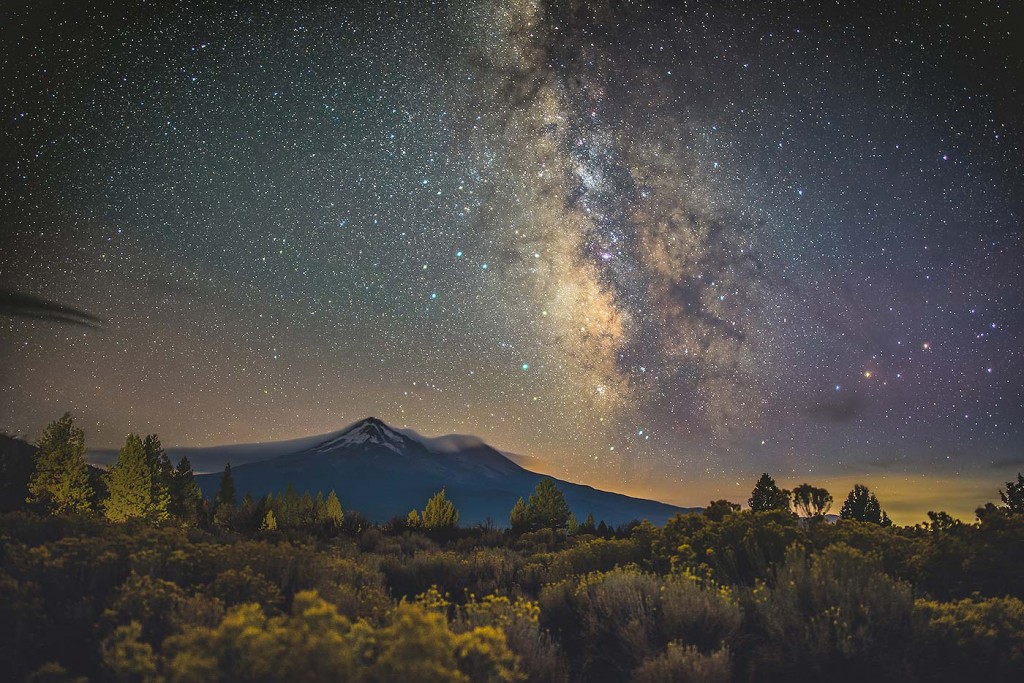
35mm/1.4: Rokinon 35mm f/1.4 US UMC ( Amazon / B&H )
or Sigma 35mm f/1.4 DG HSM Art ( Amazon / B&H )
- Standard wide angle for tighter landscapes or stitching multiple exposures into larger panoramas. Rokinon is manual focus, Sigma is autofocus.
- Score: 2084
14mm/2.8: Rokinon 14mm f/2.8 IF ED UMC ( Amazon / B&H )
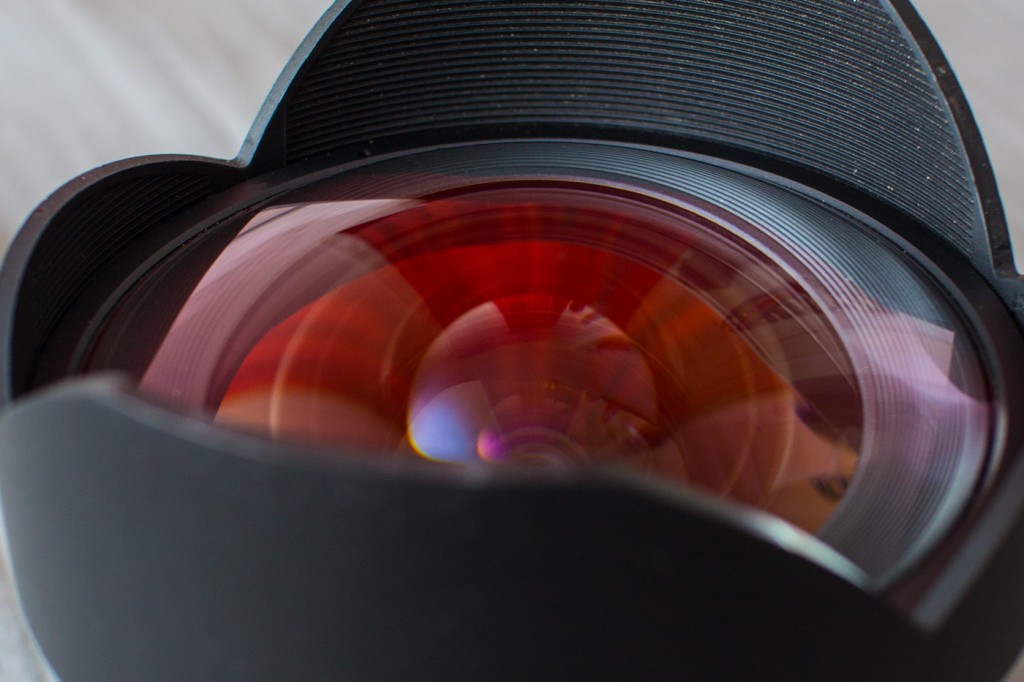
- Essential ultra-wide angle for large sweeping landscapes. Manual focus. One of the most affordable full frame nightscape lenses.
- My full review of the Rokinon 14mm f/2.8
- Score: 1032
- Sample image from the Rokinon 14mm f/2.8:
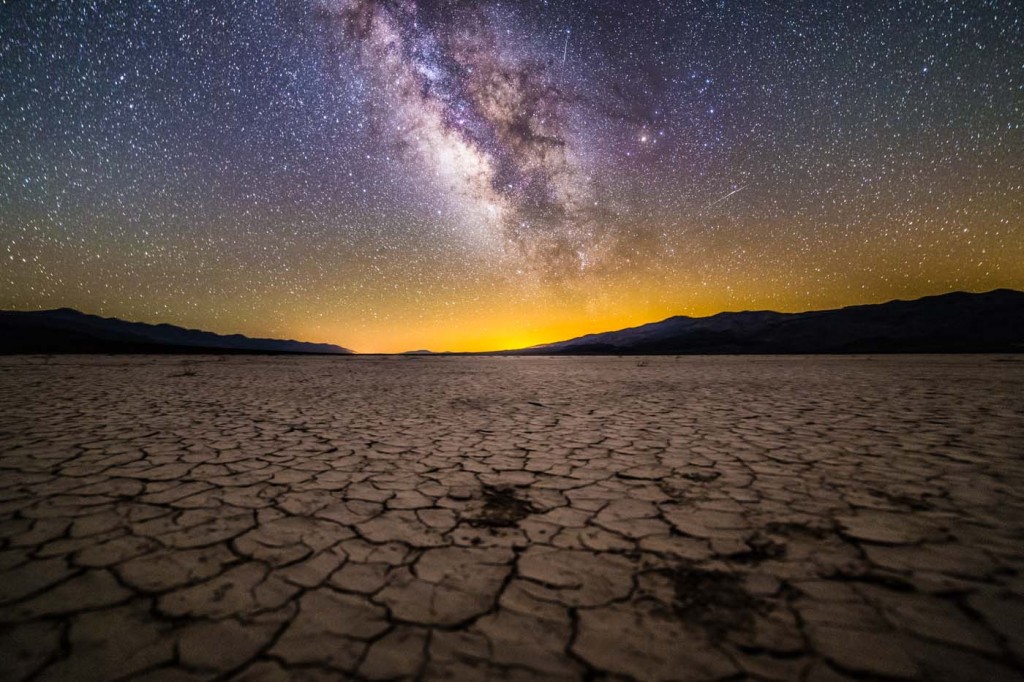
EF-S Mount (APS-C Only)
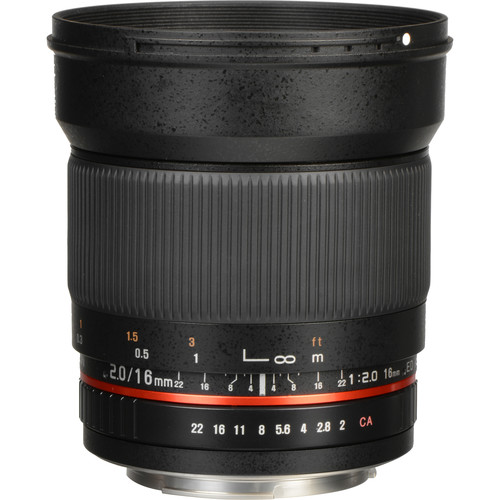
16mm/2.0: Rokinon 16mm f/2.0 ED AS UMC CS ( Amazon / B&H )
- The best combination of wide angle and large aperture. Manual focus.
- Score: 1875
10mm/2.8: Rokinon 10mm f/2.8 ED AS NCS CS ( B&H )
- APS-C alternative to the Rokinon 14mm/2.8. Excellent for ultra-wide angle landscapes. Manual focus.
- Score: 1184
11mm/2.8: Tokina 11-16 f/2.8 AT-X PRO DX II ( Amazon / B&H )
- Covers the same range as the two previous lenses combined. Excellent super wide angle zoom with autofocus.
- Score: 1149 (at 11mm)
EF-M Mount (APS-C Mirrorless)
12mm/2.0: Rokinon 12mm f/2.0 NCS CS ( Amazon / B&H )
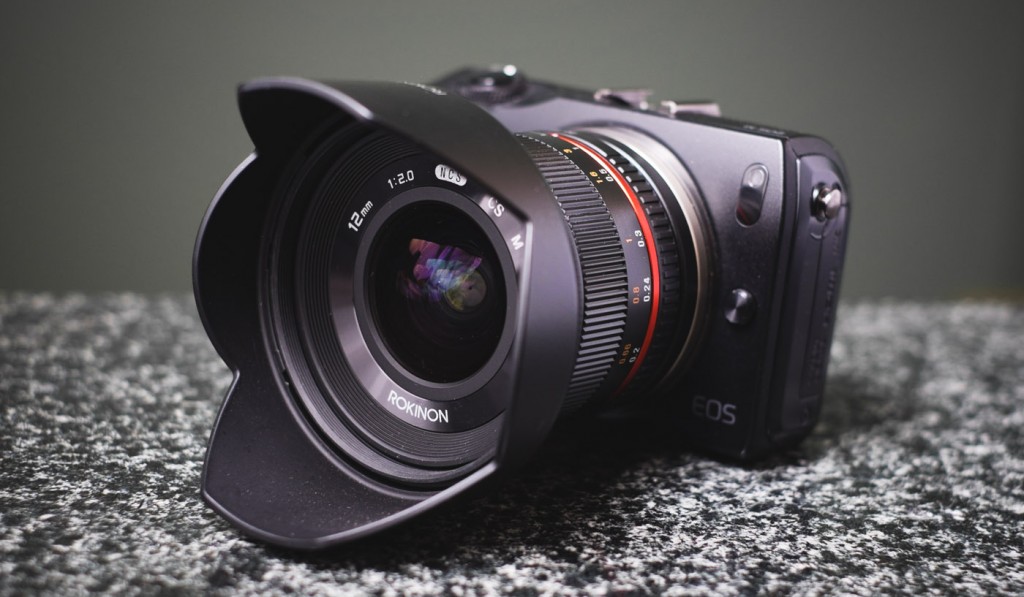
- Best lens for astrophotography on a mirrorless system. Nice and compact, best combination of super-wide field of view and large aperture.
- Score: 2176
- Sample image from the Rokinon 12mm f/2:
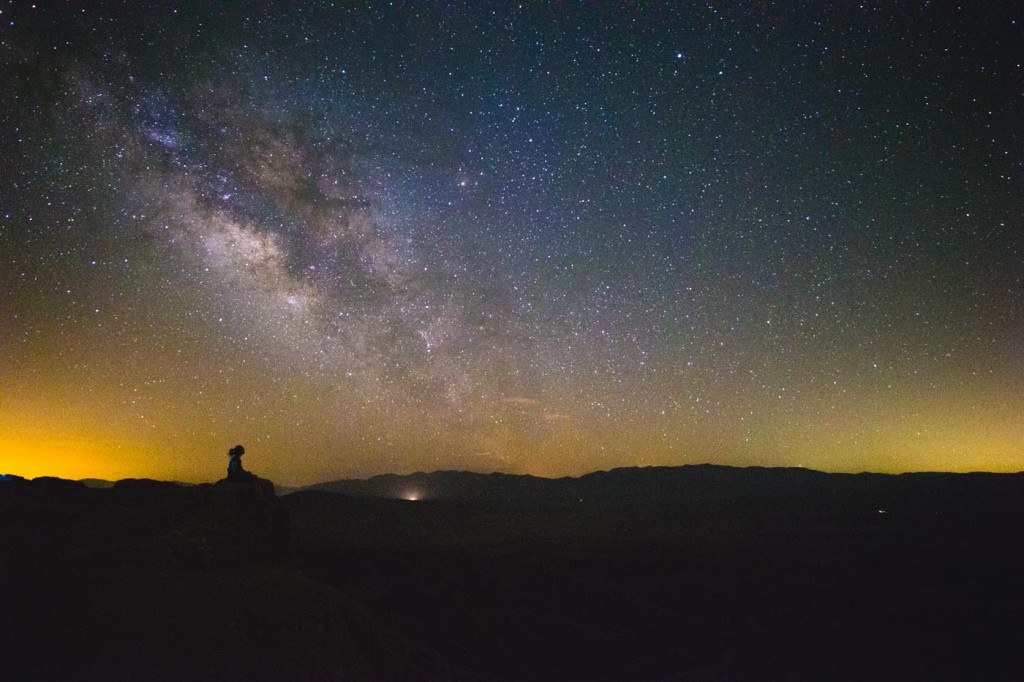
22mm/2.0: Canon EF-M 22mm f/2.0 STM ( Amazon / B&H )

- Surprisingly sharp and extremely compact lens. Also very cheap. Standard wide angle view makes it good for panorama stitches.
- Score: 1505
- Sample image from the Canon EF-M 22mm f/2 STM:
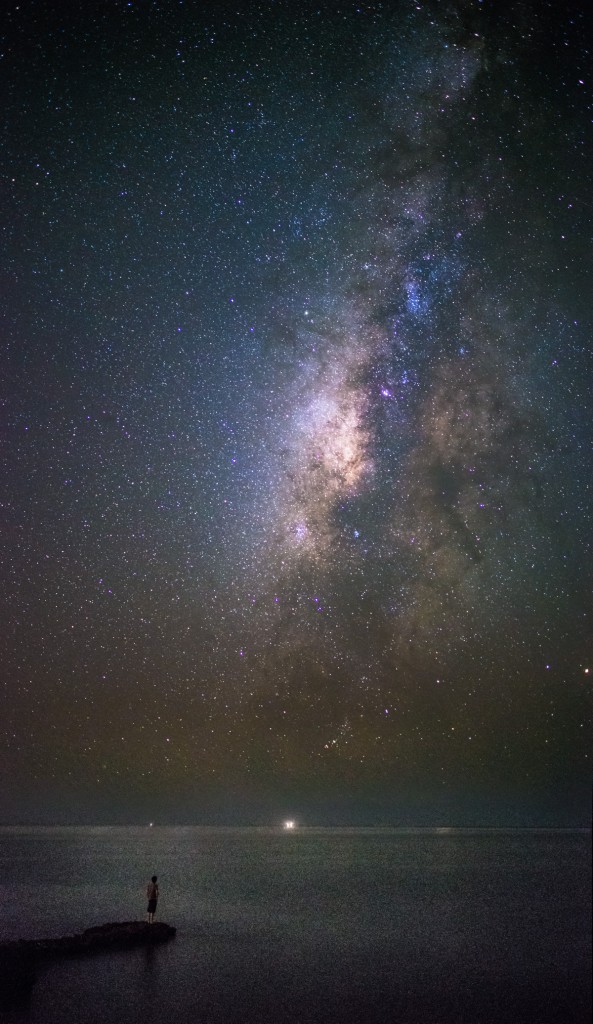
8mm/2.8: Rokinon 8mm/2.8 Fisheye II ( Amazon / B&H )
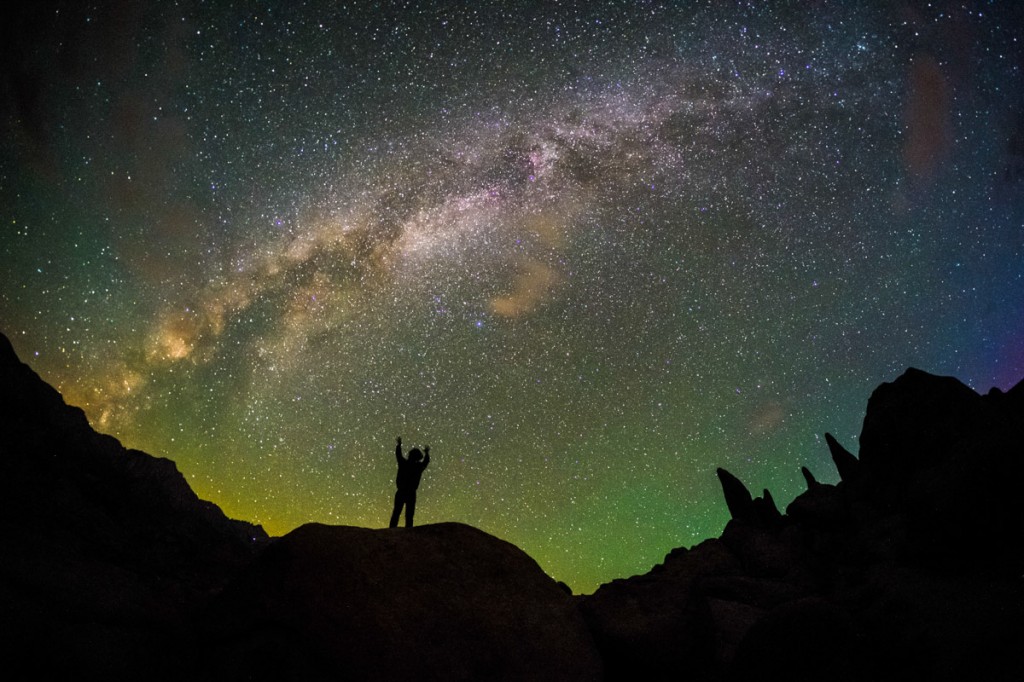
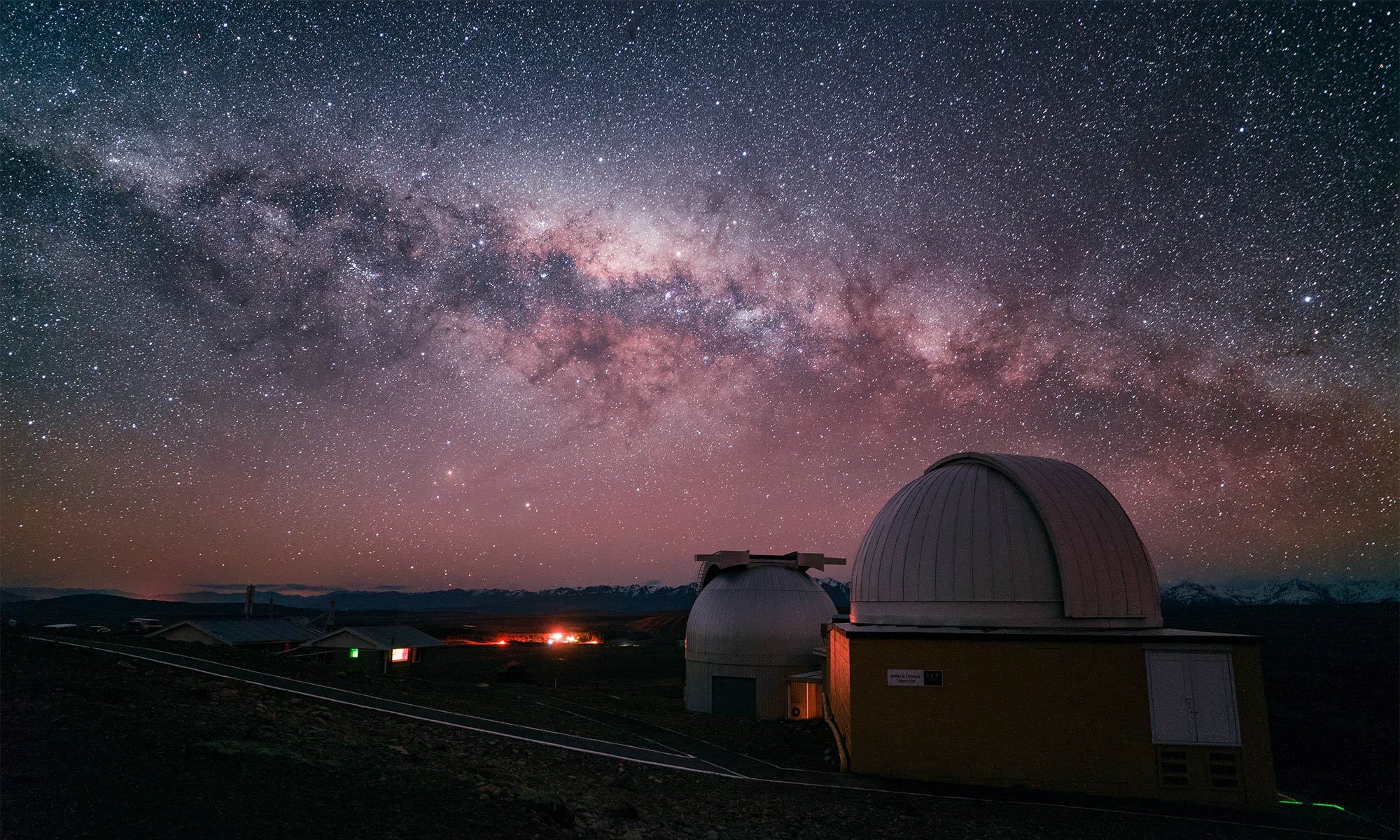
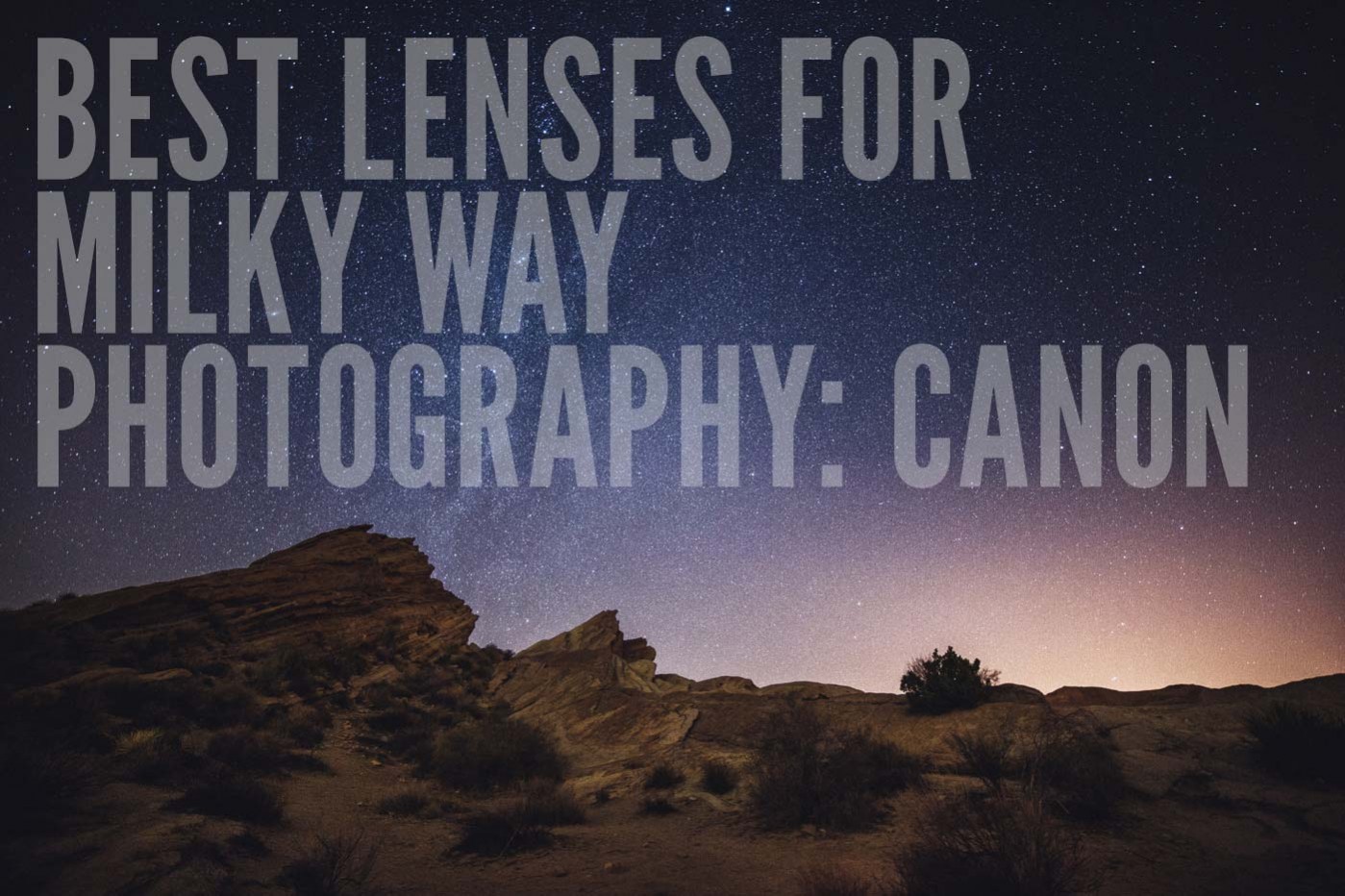
Hi,
which wide-angle lenses are better for my Canon eos 500d:
Samyang 14 mm f/2.8 IF ED UMC or Tamron SP AF 10-24mm f/3.5-4.5 Di II ?
Thanks for your reply
Both are good lenses. the 14mm/2.8 is a little faster (f/2.8) so I would recommend that first. The Tamron, however, has a larger field of view so it might be nice for large sweeping landscapes.
Ok, thank you!
But on the Samyang I can`t put any filters, so I don`t know about this.
Hiya love the site, which lens would be best for the Sony a6000? And how did you find this camera
Cheers
For astrophotography on a mirrorless APS-C camera, my personal favorite is the Rokinon 12mm f/2.0.
Hi, I have a Canon 60D with 18-200 mm f/3.5 standard zoom lens. Now I am confused between going for wide field of view or fast lens.
I am looking at 16 mm f/2.0, now my question is how much wider it will be compare to my 18 – 200 mm lens? Of course f 2.0 is way better than f 3.5 for sure but 18 mm and 16 mm is not much that different.
Somehow I feel I should buy 24 mm f1.4, specially because f 1.4 give you classy pics as far as depth of field is concerned. But will this lens capture wider field of view than what I already have? Its angular coverage is 84 degrees but with my Canon 60D it will be only 57 degrees 🙁
help me out please!
16mm will be noticeably wider than the 18mm. the diagonal field of view difference is approximately 74 degrees on the 18mm vs 84 degrees on the 16mm.
The 24mm will be narrower than your 18-200mm at 18mm but identical in field of view if you set your 18-200mm to 24mm of course. Just as you say, it will only be 57 degrees.
I you’re just starting out I recommend the widest field of view possible so the 16mm/2.0 or even something shorter like the 10mm/2.8 or 14mm/2.8 will make the whole experience much better.
Hi Ian, I’m new to astrophotography but would like to give it a go. I own a Canon 700D and I have a Sigma 10-20 f3.5 zoom for daytime landscape shots. Is this lens any good for astrophotography?
regards
Simon
The Sigma should be a good lens to start with for sure! The ultra wide field of view will allow you to use nice long shutter speeds (30 seconds should be a good start). Be sure to shoot at f/3.5 to gather the most light possible. Definitely get used to using that lens for night photography before considering an upgrade, it should serve the purpose well as you are just getting started.
Just wanted to say a big thank you for this and your related articles, both of which I found to be well written, informative and enjoyable. I have a 7D, my first DSLR, and want to get into astrophotography. Your articles may have saved me a lot of money
Thanks Rik!
Hi Ian, I would be happy to purchase the Rokinon 14mm Ultra Wide-Angle f/2.8 IF ED UMC Lens For Canon here in Canada, but BH is American and the shipping is a lot. When I search for this lens here, I only get the SAMYANG 14MM F2.8 MF AE LENS (CANON EOS)..is this the same lens now? Much appreciated and great article!
yes, Samyang and Rokinon are the same.